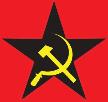SACP’s initial response to the 2018 national budget speech
The SACP acknowledges that the budget announced today occurs within a very challenging situation, not least a nearly R50bn fiscal deficit, and a public debt that is simply unsustainable over the medium term. It is a debt which threatens to undermine any latitude for sovereign developmental policy implementation. Demagogic and populist responses to the budget should, therefore, be avoided.
Much (by some estimates around half) of the deficit is directly attributable to the parasitic looting of public resources by the state capture phenomenon. Insofar as today’s budget needs to be understood as an integral part of the welcome anti-corruption posture and active measures that have been in evidence in the past weeks, it is to be welcomed. The budget speech reinforced the State of the Nation Address (SONA) message around urgent attention to the governance of State Owned Corporations, a commission of inquiry into SARS, and stronger regulatory and other measures against corrupt activities in the private sector.
However, we are extremely unhappy with the increase of VAT. It marks the possible beginnings of regressive creep. While some basic foodstuffs are zero rated, the working class and poor do not live on bread and pap alone. Children of the poor don’t go to school dressed in staple foods. It is simply untrue to argue, as the Minister of Finance did, that the 20% poorest will be unaffected by the VAT hike. What is more, other indirect taxes, like the increase in the fuel levy, will further impact on the cost of living especially for the poor.
Overall, the macro-economic impact of the VAT increase will dampen demand, impact on GDP growth, and have negative implications for employment creation.
We note the higher than inflation increases in social grants which were announced as a compensatory measure. Apart from the extremely modest impact these increases will actually have, there is a deeper, longer-term structural concern. In essence, the Budget is reaching for a social compact with the poor – increased social grant payments in exchange for increased VAT. This runs counter to the underlying logic of President Ramaphosa’s SONA address in which stimulating the productive economy – whether through industrialisation, infrastructure development, land reform or leveraging investment into job creating activity – is the critical point of emphasis. The implicit logic of the social grant for VAT deal is the perpetuation of a welfarist and not active developmental approach.
The SACP fully supports measures to turn around the state owned corporations, given their critical role in driving radical transformation. However, there are some concerns. Minister Gigaba told us that State Owned Corporations (SOCs) “are expected to fund their own operations.” While this might be a realistic medium-term expectation of an Eskom, for instance, it is certainly totally unrealistic when it comes to an entity like PRASA which should be providing an essential public service with a positive impact on productivity. It cannot be expected to run its operations based on fare collection. Even in developed economies public transport is typically heavily subsidised.
While the SACP does not oppose in principle investigating the possibility in certain cases of bringing strategic equity partners as minority share-holders in struggling SOCs – such a move needs to be made with great caution. Equity partners will increase the pressures on SOCs to “maximise share-holder value” and this always tends erode the public interest, developmental mandate of an SOC. We have had direct experience of this in the case of both Telkom and ACSA.
On Friday, 23 February the SACP will be convening the Third Plenary Session of its 14th Congress Central Committee to further reflect, programmatically, on the budget and the overall political-economic situation of our country.
Statement issued by SACP, 21 February 2018

